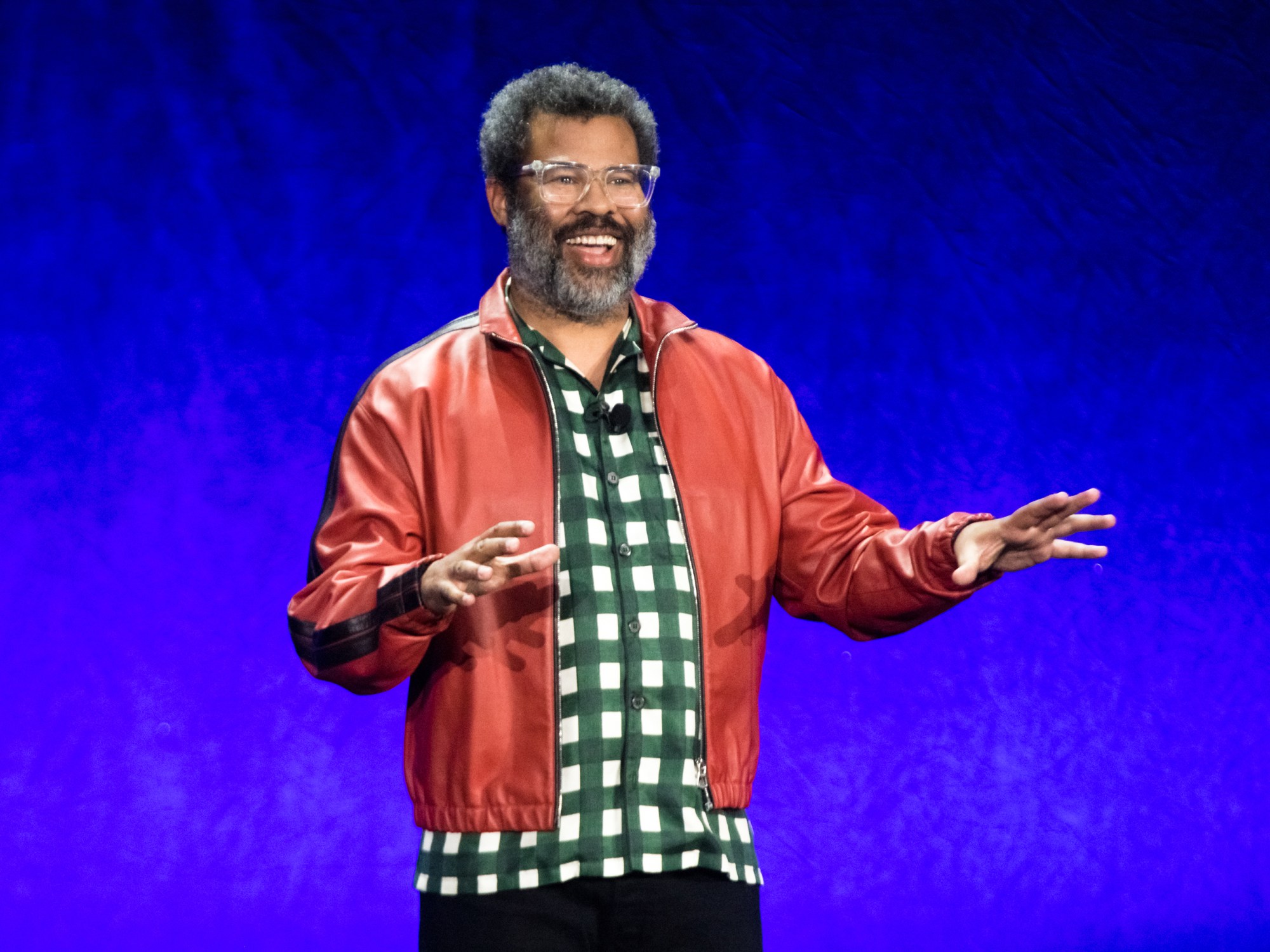
- Film
“Nope” – Jordan Peele’s Latest Pushes Genre to the Limit
Is it possible for Jordan Peele to release a film without setting the internet on fire? Nope.
The 43-year-old writer, director, producer and Academy Award Winner’s highly anticipated third film, Nope, premiered with a $44 million debut last Friday, immediately sending social media into chaos over Peele’s motivations.
The horror/sci-fi/western/thriller seems to have drawn inspiration from disparate films like Jaws, Close Encounters of the Third Kind, Signs, Freaks and The Ghost and the DarknessMoby Dick.
One of Peele’s main, stated motivations for the $68 million IMAX-shot film was to change the rules of the game by changing who gets to work behind and in front of the cameras in big Hollywood films.
“We got to do that big original blockbuster movie. That, in itself, is part of what the movie’s about,” Peele said in a July GQ article. “It’s about taking up that space. It’s about existing. It’s about acknowledging the people who were erased in the journey to get here.”
The story begins by shedding light on one of Hollywood’s forgotten Black heroes. It follows siblings OJ (Daniel Kaluuya) and Emerald (Keke Palmer) Haywood, who are descendants of the first man to ever star in a ‘moving picture.’ While their ancestor’s name in the film, Alistair Haywood, is fictional, the core essence of the story is based on fact.
English photographer Eadweard Muybridge is credited with helping birth cinematography through his work in chronophotography and animal locomotion, from 1878-1886. One of his “films,” braided into Nope, involves a horse named Annie G., ridden by an unidentified jockey, meant to be Haywood. In addition to the fact that the man captured in those important sequences was Black, another truth that many people may not have known before the film is that Black jockeys dominated the sport of thoroughbred racing in America, from the first Kentucky Derby in 1875 through 1903, before they were pushed out.
A horse as more memorable to film history than the Black man who rode is one of Peele’s many cringe-worthy motifs. From there, the meta themes of Hollywood’s exploitation and its brutal and hollow consumption, embodied by “Jean Jacket,” unfold in new and nuanced ways.
While Black exploitation introduces the audience to the film, we also get a biting commentary on the exploitation of animals and our inability as a species to live in healthy symbiosis with the natural world. Introvert OJ, like the horses he wrangles, has seemingly been ‘tamed’ by society to not look people in the eye (one of many rage-inducing stories we barely scratch the surface of in the film). This could be why he’s willing to risk his life for the animals, and why he doesn’t see a separation between their well-being and his own. His empathy and his connection to his horses help him crack the code to finally fight the big baddy.
From deer in Get Out to rabbits in Us, Peele has always used animals as symbols in his films. And the fate of Gordy and the rest of the Gordy’s Home! cast may have come from a nightmare Peele had in the fall of 2014, when he tweeted: “Dreamt that a baby chimp attacked some people then ran to me and hugged me all scared. I woke up with tears streaming down my face. #bruh”. Also: Peele’s film company is called MonkeyPaw Productions. Something is definitely going on with Peele and primates.
This film may also be the vehicle that launches Keke Palmer – long ‘blackfamous’, as brilliantly described in a Feb 2022 Hollywood Reporter story – to mainstream recognition and probable stardom status. The 28-year-old actress has been in the business for almost two decades in films and TV shows, including Barbershop 2: Back in Business, Akeelah and the Bee, and True Jackson, VP. Palmer may be looking at award nominations for giving us a rare glimpse at what a Black actress can bring to the quintessential ‘final girl’ in a horror film.
Palmer also gives the audience a bit of comic relief between jump scares, as do some of the Gordy’s Home! flashbacks that channel an Alf meets Webster hybrid sitcom. Steven Yeun (from Golden Globe winner Minari) and Brandon Perea (The OA) round out the cast while providing moments of camp and solemnity.
And if the world needed another ‘80s anthem to buoy a climactic scene, the movie features an eerie, slowed-down version of Corey Hart’s “Sunglasses at Night” that may give Kate Bush’s “Running Up That Hill”, featured in the TV hit Stranger Things, a run for her money this summer. Just another, unexpected, way in which Peele has proven himself to be the king of the zeitgeist.